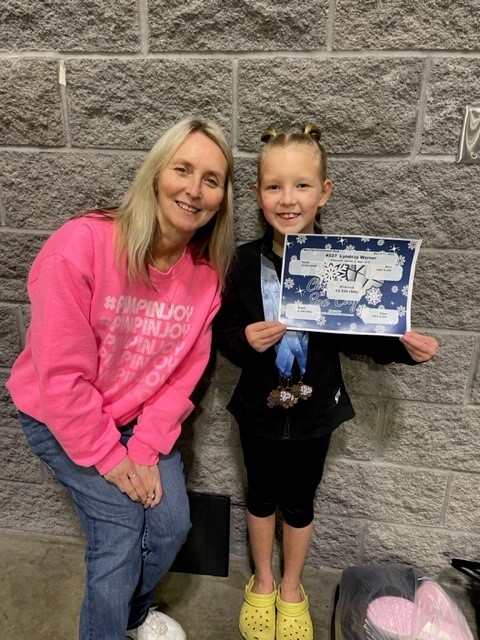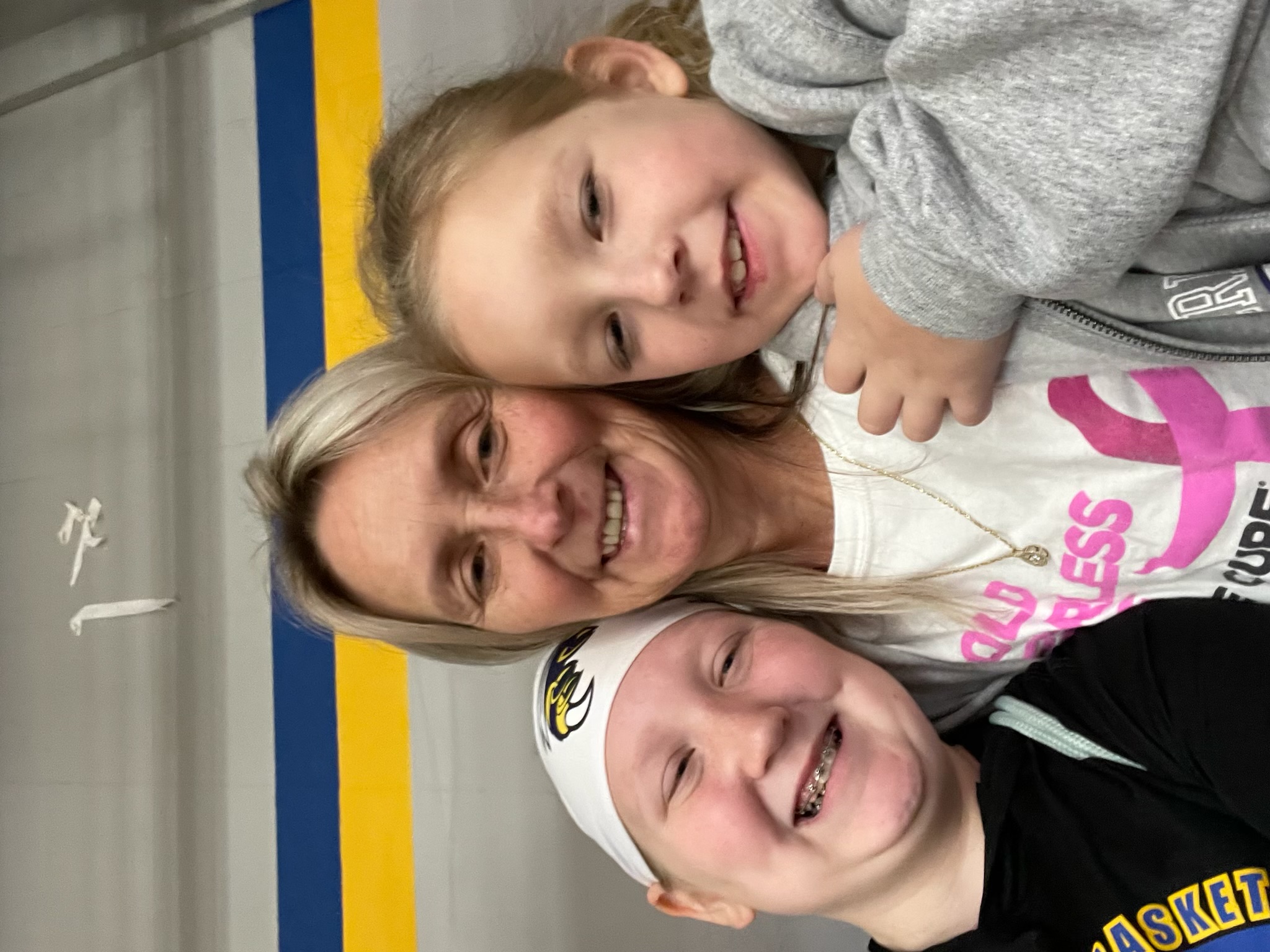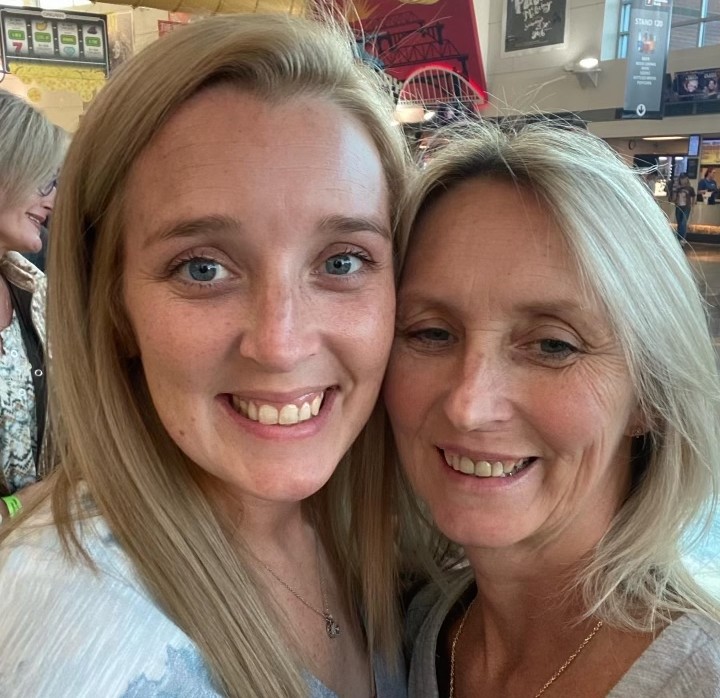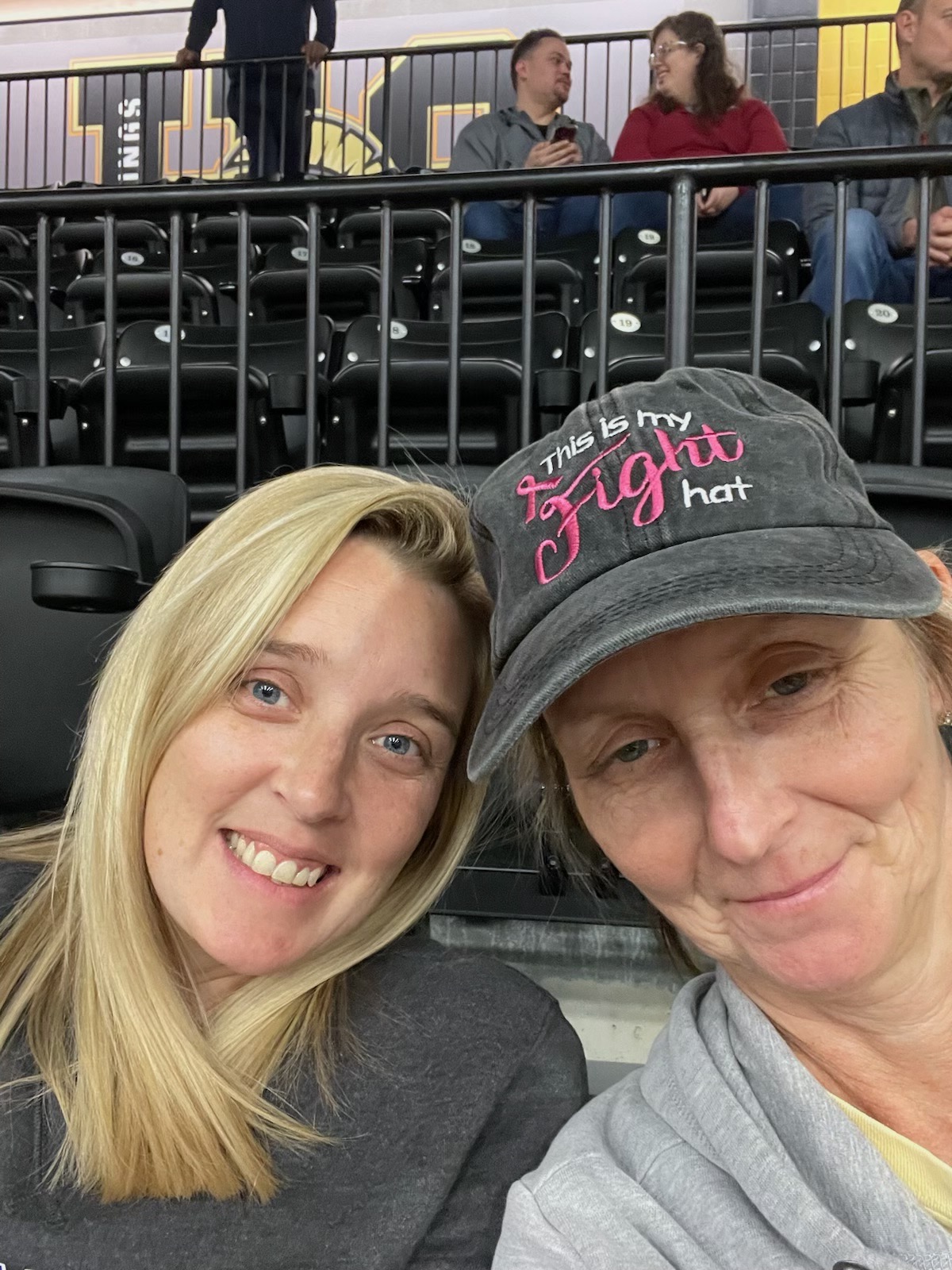Donna Dunn has always been good about getting her annual mammogram, especially since her husband died almost 10 years ago from a heart attack, leaving her as her adult daughter’s sole support. Now she also helps out with her 9- and 11-year-old granddaughters, shuttling them to and from gymnastics and basketball practice.
Last fall, when Donna, 53, got her mammogram reminder letter in the mail, she noticed a note on the bottom in tiny print. It said that because she has dense breasts, she was eligible for a new test called an ABUS ultrasound.
Donna learned that the Invenia ABUS 2.0, technology made by GE HealthCare, is the first FDA-approved ultrasound supplemental screening designed to detect cancer in dense breast tissue. Some 40% of women have dense breasts, meaning their breasts have less fatty tissue and more glandular tissue and fibrous connective tissue, which can make it harder for mammograms to see cancers. It’s one of the strongest risk factors for developing breast cancer.
Earlier this month, the Food and Drug Administration recognized the significance of dense breasts as a cancer risk factor by updating its mammography regulations. Mammography facilities will now be required to notify patients about the density of their breasts. Previously, some states required notification, but with varied language and information about risk.
ABUS uses software with artificial intelligence to help clinicians find cancers that might be hidden on traditional mammography. It’s part of a comprehensive breast care portfolio of solutions.
Donna wanted the new test. She didn’t anticipate any issues, but she had been feeling fatigued and she was eager to get the annual preventive test checked off her long to-do list.
She had a routine annual mammogram near her home in East End, Arkansas. Then, after another patient canceled, she had an ABUS ultrasound the same day. Two days later she got her results: She had a 1-centimeter mass on her left breast.
A week later, Donna went back for another ultrasound and a biopsy, and the next day the clinic called her with the news. She had breast cancer: invasive ductal carcinoma, stage 1A. Her care moved quickly after that. She saw a surgeon and had an MRI and another ultrasound in preparation for surgery. Less than two months after the mass was found, it was removed.
Soon after, Donna learned that her cancer was estrogen-driven. She’d been taking the hormone daily after experiencing uncomfortable, persistent hot flashes following a hysterectomy in 2016.
“Every one of my doctors said that if I had not had the ABUS test, then this time next year would have been a whole different story,” Donna says. The cancer likely would have spread. “I could have had a heck of a fight on my hands to stay alive so I could see my grandchildren grow. I remember being at my youngest granddaughter’s gymnastics meet thinking to myself, ‘I’m so happy to be able to be here.’ But I felt so unsure what my treatment was going to be and what came next.”
Instead, by removing two lymph nodes from under Donna’s left arm, her doctors concluded that the cancer was contained. When used in addition to mammography, Invenia ABUS 2.0 can improve breast cancer detection by 35.7% over mammography alone. Meanwhile, women whose breast cancer is detected at an early stage have a 90% or higher survival rate.
 |
 |
Donna spent a week recovering from her surgery. The most difficult part, she says, was swelling under her arm when her incision got infected. She was eager to get back to work and to keep busy as a director of safety at a local trucking company.
In January, she started a series of five high-dosage radiation treatments. The day after her last radiation treatment in early February, despite exhaustion, she sat in the stands at her granddaughter’s basketball tournament and beamed when the team won for the second year in a row.
“I’m with my granddaughters every chance I get, and I’m thankful that I’m able to be here,” she says. “I’m one of the lucky ones.”
Since her surgery, Donna has stopped taking estrogen and instead is on a medication that blocks her body from making the hormone. She’s having hot flashes again, but exercise, eating healthy, and getting adequate rest helps.
She tires easily now, too, but her doctors tell her that’s common after surgery. Perhaps the best news Donna has received from her care team is that there’s a 97% chance the cancer will not come back. She credits her positive outcome to the ABUS screening.
Since her experience, Donna has been vocal about dense breasts. More women have them than most people realize, she says, and getting the best possible annual screening is critical. Women with dense breasts should have an ABUS, she says.
Donna, for her part, has an upcoming follow-up scan with her oncologist, and then an MRI ordered by her breast surgeon. When it’s time for her next routine breast check, she is adamant about how she’ll proceed.
“I’m going to insist on going straight to ABUS,” she says. “It’s a test that can save your life.”


